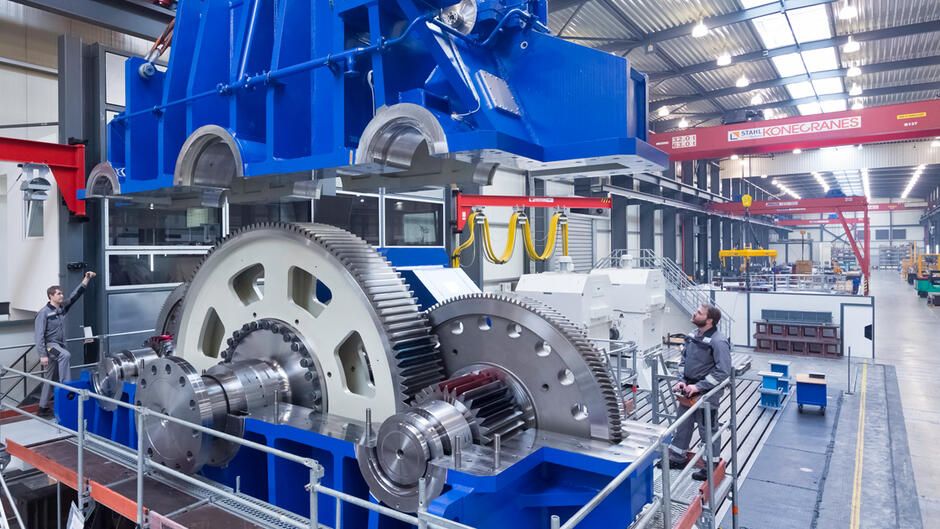
Value Creation Strategies
Explore key strategies for creating value in business, fostering innovation, and ensuring sustainable growth in a competitive landscape.
Value creation in business is a pivotal concept essential for achieving long-term success. It encompasses strategies and practices that enhance a company’s appeal to customers and stakeholders, driving growth and competitiveness. By focusing on value creation, businesses can foster innovation, build strong customer relationships, and ensure lasting market relevance. Importantly, value creation extends beyond profit generation; it involves developing sustainable business practices that contribute to overall market stability and societal well-being. This holistic approach not only strengthens a company’s market position but also promotes enduring success and resilience in an ever-evolving business landscape.
What is Value Creation?
Value creation is a multifaceted process aimed at enhancing the worth of a product, service, or entire business by improving its appeal to customers and stakeholders. This enhancement can take various forms, such as product innovation, superior customer service, or streamlined operational efficiency. Essentially, value creation is about making offerings more attractive, useful, or desirable, thereby fostering stronger customer relationships and driving business growth.
Goals and Objectives of Value Creation
The primary goals and objectives of value creation include:
Increasing Market Share: By developing products or services that better meet the needs and preferences of customers, businesses can attract a larger share of the market. This not only boosts sales but also establishes the company as a leader in its industry.
- Boosting Revenue: Enhanced value leads to increased customer willingness to pay, thereby driving higher sales and revenue. When customers perceive that they are receiving superior value, they are more likely to make repeat purchases and even pay a premium for the product or service
- Enhancing Customer Loyalty: Value creation fosters customer satisfaction and loyalty. When customers consistently experience high value from a brand, they are more likely to remain loyal, reducing churn rates and increasing lifetime customer value
- Gaining a Competitive Advantage: Differentiating a product or service through unique value propositions helps a business stand out in a crowded marketplace. This competitive edge is crucial for attracting and retaining customers in an environment where alternatives are readily available
Importance of Value Creation
Value creation is vital for several reasons:
Establishing a Strong Market Position
Businesses that consistently create value for their customers can establish a robust market position. This involves not just meeting but exceeding customer expectations, thereby fostering a loyal customer base and positive brand reputation.
Driving Innovation
The pursuit of value creation often leads to innovation. Companies that prioritize value are continually looking for new ways to solve customer problems, enhance their offerings, and streamline their operations. This innovation is essential for staying relevant in a rapidly changing market.
Sustainable Growth
Value creation supports sustainable business practices that contribute to long-term success. It encourages businesses to look beyond short-term gains and focus on strategies that ensure ongoing development and market presence.
Customer Satisfaction
At its core, value creation is about understanding and fulfilling customer needs. By prioritizing customer satisfaction, businesses can build stronger relationships and create a loyal customer base that advocates for the brand.
Business Value Creation
Enhancing a company’s worth involves improving its appeal and relevance to customers and stakeholders through a strategic approach known as value creation. This process is crucial for achieving sustainable growth and maintaining a competitive edge in the marketplace. Key components of value creation include innovation, operational efficiency, and customer-centric strategies. Effectively understanding and implementing these elements can yield significant benefits, such as increased profitability, improved brand reputation, and enhanced customer loyalty.
Innovation involves introducing new products or improving existing ones to meet customer needs. This requires investment in research and development. It also includes process innovation, such as adopting new technologies and streamlining workflows to boost productivity.
Operational Efficiency focuses on reducing costs and optimizing processes. Techniques like lean management help eliminate waste, improve resource allocation, and speed up production.
Customer-Centric Strategies prioritize superior customer service and personalized experiences. Businesses can leverage data analytics to tailor their offerings and build long-term customer relationships through loyalty programs and consistent value delivery.
The benefits of effective value creation include:
- Increased Profitability: Higher perceived value leads to more sales and premium pricing
- Enhanced Brand Reputation: Innovative products and excellent service build trust and attract new customers
- Stronger Customer Loyalty: Satisfied customers are more likely to make repeat purchases and refer others
Leadership plays a critical role in fostering a culture of value creation. Leaders must set clear goals, empower employees with resources and training, and encourage continuous improvement. Promoting collaboration across departments and recognizing employee contributions are also essential. By leading by example and prioritizing customer needs, leaders can drive the company’s value creation efforts effectively.
The Value Creation Process
The value creation process is a structured journey that businesses undertake to elevate their offerings and competitive positioning. It begins with a thorough analysis of market trends, customer needs, and competitive dynamics. By delving into market research, businesses can identify emerging opportunities and potential gaps in existing solutions. Simultaneously, understanding customer preferences and pain points through feedback mechanisms and comprehensive surveys provides insights into where value can be most effectively delivered.
Once opportunities are identified, the next crucial step is developing compelling value propositions. This involves clearly defining what makes the product or service unique and valuable to customers. Crafting a strong value proposition entails understanding the specific benefits that resonate with different customer segments and articulating these advantages in a way that stands out from competitors.
-
Implementing value-creating initiatives requires strategic planning and cross-functional collaboration. Aligning these initiatives with broader business goals ensures that resources are allocated effectively and that efforts contribute to long-term sustainability. Whether investing in research and development, enhancing operational processes, or refining customer service offerings, each initiative should be geared towards enhancing the perceived value delivered to customers
-
Measuring and evaluating the impact of these initiatives is crucial to understanding their effectiveness. Key performance indicators (KPIs), such as customer satisfaction metrics, market share growth, and financial performance indicators, provide quantifiable measures of success. Concurrently, gathering ongoing feedback from customers and stakeholders offers qualitative insights into how well these initiatives are meeting expectations and where improvements can be made
-
Continuous improvement lies at the heart of the value creation process. By iteratively refining strategies based on data-driven insights and feedback, businesses can stay responsive to changing market dynamics and evolving customer needs. Cultivating an environment that values innovation and learning encourages ongoing adaptation and innovation, ensuring that value creation efforts remain relevant and impactful over time
In essence, the value creation process is a dynamic and iterative journey that empowers businesses to differentiate themselves in the marketplace, foster customer loyalty, and achieve sustainable growth. Through strategic analysis, thoughtful execution, and continuous improvement, businesses can continuously enhance their offerings and deliver meaningful value to their customers.
Sustainable Value Creation
Sustainable value creation is pivotal for businesses aiming to achieve long-term success by integrating environmental, social, and economic considerations into their core practices. By prioritizing sustainability, companies can not only enhance their reputation but also foster resilience in a rapidly evolving market landscape.
Importance of Sustainability: Incorporating sustainability into value creation strategies ensures that businesses operate in a manner that preserves environmental resources, supports social well-being, and maintains economic viability over time. This approach aligns with global expectations for responsible corporate behavior and positions companies to mitigate risks associated with climate change, regulatory shifts, and changing consumer preferences.
Balancing Profitability and Societal Impact: Sustainable value creation involves strategies that harmonize profitability with positive societal contributions. For instance, adopting eco-friendly product designs reduces carbon footprints and resource consumption, thereby minimizing environmental impact while meeting consumer demand for sustainable products. Ethical sourcing practices ensure fair treatment of workers and support local economies, enhancing social equity alongside business operations.
Examples of Sustainable Practices: Companies can implement various sustainable initiatives, such as:
- Eco-friendly Product Designs: Developing products that are energy-efficient, recyclable, or made from renewable materials
- Ethical Sourcing: Ensuring supply chains adhere to fair labor practices, support local communities, and prioritize sustainable sourcing of raw materials
- Community Engagement: Engaging with local communities through philanthropic initiatives, volunteer programs, and partnerships that address social issues and contribute to community well-being
Building Brand Trust and Customer Loyalty: Sustainable practices resonate with environmentally conscious consumers who prioritize ethical and sustainable choices. By demonstrating a commitment to sustainability, businesses build trust, attract a loyal customer base, and differentiate themselves in competitive markets.
Creating a Resilient Business Model: Embracing sustainable value creation fosters agility and adaptability in response to evolving market expectations and regulatory requirements. Companies that integrate sustainability into their core strategies are better positioned to navigate market disruptions, regulatory changes, and consumer shifts, thereby building a resilient business model for long-term success.
How H&Z Can Support You
At H&Z Group, we specialize in helping businesses enhance value creation through our expertise in strategic consulting, technological innovation, and operational excellence. We support growth by identifying key market opportunities, developing compelling value propositions, and implementing strategies that align closely with your business goals and customer expectations.
We prioritize sustainability, integrating environmental, social, and economic considerations into our solutions to build brand trust and ensure resilience in competitive markets. Our commitment to continuous improvement and fostering an innovative culture empowers your business to achieve long-term success and navigate dynamic market landscapes effectively.
Frequently Asked Questions
How does business strategy create value?
Business strategy creates value by focusing resources on activities that differentiate the company, optimize operations, improve customer satisfaction, and drive profitability through strategic decision-making and alignment with market opportunities.
What are the ways to create value in a business?
Key ways to create value in business include innovation in products and processes, operational efficiency to reduce costs, customer-centric strategies to enhance satisfaction and loyalty, strategic partnerships to access new markets or technologies, and sustainability practices that integrate environmental and social responsibility
What are the 4 levels of value creation?
The four levels of value creation are operational excellence (efficiency in operations), product leadership (superior products/services), customer intimacy (strong customer relationships), and societal contribution (positive impact on society and environment).
What is the strategic value creation process?
The strategic value creation process involves analyzing market opportunities and competitive dynamics, planning strategies to capitalize on these insights, implementing initiatives to enhance offerings and operations, evaluating performance using KPIs, and continuously adjusting strategies based on feedback and market changes to sustain value creation efforts.


